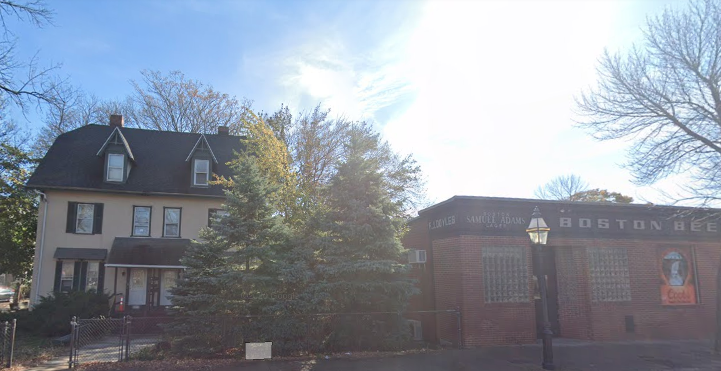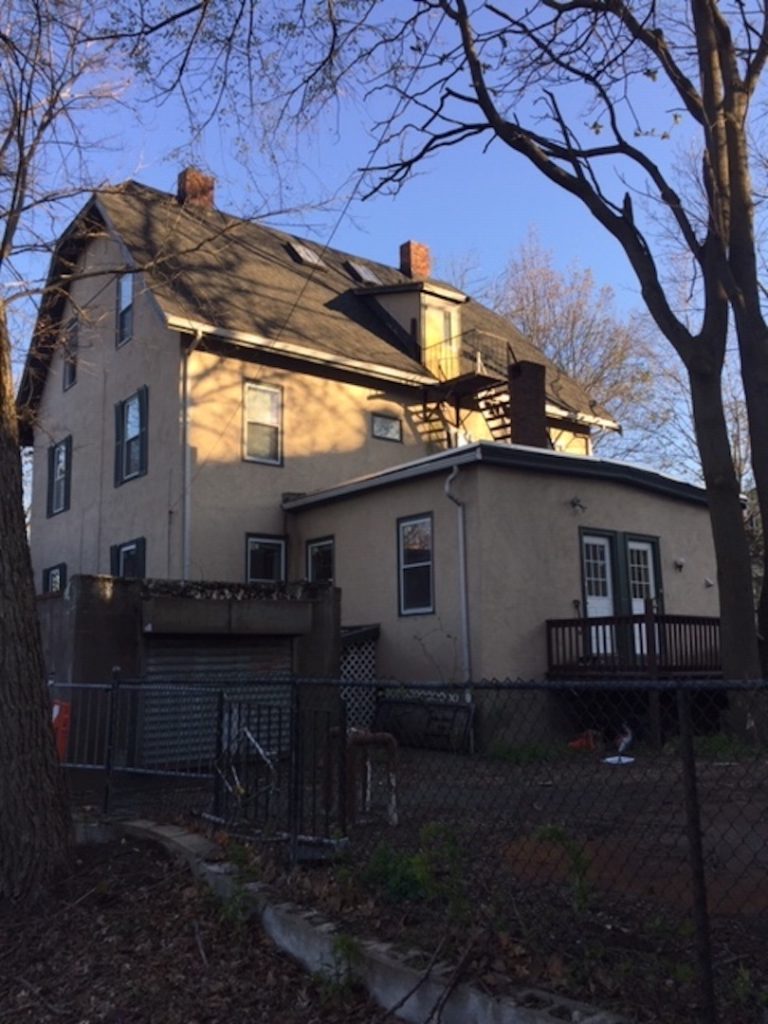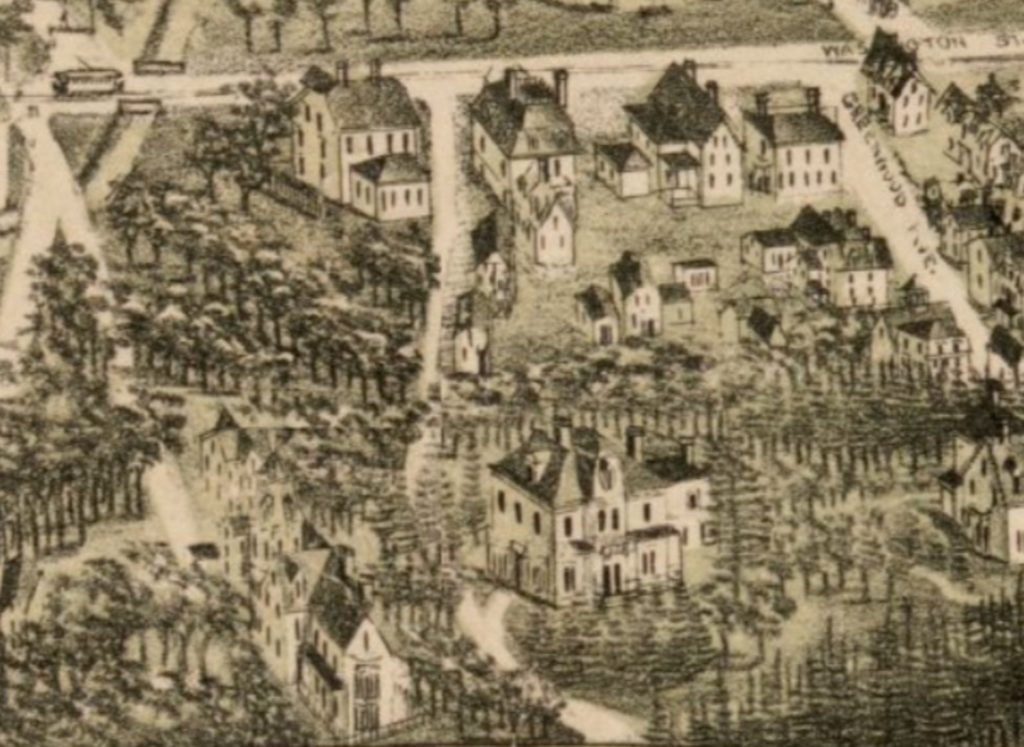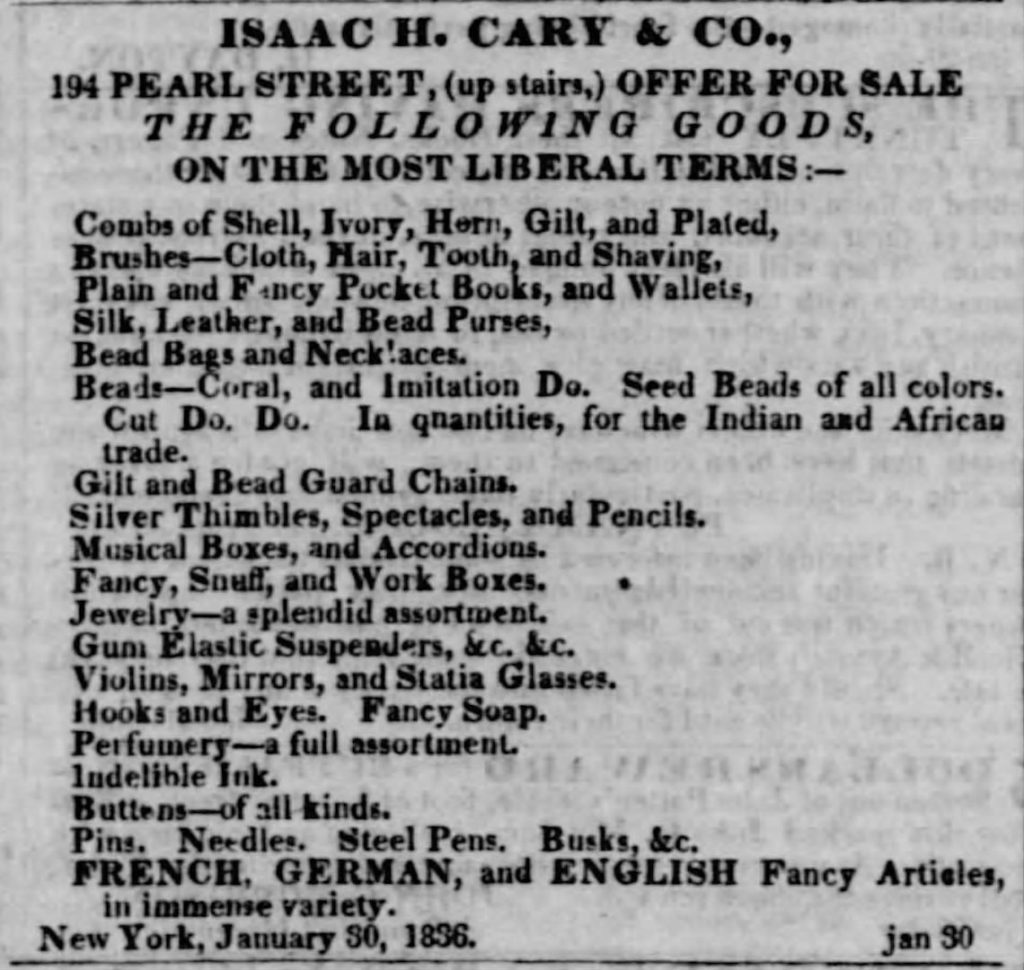
30 Apr The “Sunnyside” of Jamaica Plain: The History of 3474-3476 Washington Street
Jenny Nathans is a student pursuing her Master’s in Library and Information Science, with a focus on archives administration, and is a resident of Jamaica Plain. She recently shared with us her research on the historic house at 3474-3476 Washington Street in Jamaica Plain. In it, she tells the story of Isaac Harris Cary, a prominent merchant and real estate developer from Jamaica Plain and his two-family house that would eventually become the home of the Doyles brothers, of Doyle’s Cafe fame, a house now threatened with demolition. We are grateful to Jenny for sharing this information with HBI for this blog.
3474-3476 Washington Street in Jamaica Plain, Massachusetts is a three-story, two-family house that was built sometime between 1874 and 1886 by Isaac Harris Cary, a prominent merchant and real estate developer from Jamaica Plain. The double-frame house, located at the corner of Washington and Gartland Streets, is built in the Gothic Revival style with simple decorative trusses above the third-floor dormers and a hip-on-gable, or jerkinhead, roof.

Isaac Cary was born in the North End neighborhood of Boston, Massachusetts on November 3, 1803, the seventh child of Jonathan and Mary Cary. On February 22, 1831, Isaac married Phebe P. Pratt of Roxbury. Together they had three children – Susanna Elizabeth, Eliza Pratt Farnam, and William George.
The Cary family lived in Jamaica Plain by 1850. Their homestead was located at the corner of Forest Hills and Williams Street at a sprawling estate that they called “Sunnyside.” Sunnyside was described by William Cutter (1910), as well as its connection to Franklin Park: “His home in Jamaica Plain was an extensive estate among the famous pudding stone rocks of that section and he derived much pleasure in laying out and cultivating his place. He had many drives built through the spacious estate and took pleasure in naming them and even the prominent ledges he designated by names such as Sunset, Jerusalem and Philippines.
His house was on Forest Hill street, attractive in architecture and beautiful in its appointments. The improvement and landscape work in Franklin Park, near his home, was due in large measure to his efforts and influence.” The Carys were Unitarians and prominent members of the First Church in Roxbury. Their Sunnyside home was often used as a meeting place for ministers and laymen of the faith. Sunnyside can be seen in this 1891 Bird’s Eye Map of Jamaica plain, on the bottom, middle of the image. 3474-3476 Washington Street is visible near the top, left corner of the image.
“The Cary family’s connection with the town of Lexington is reflected in their legacy of support through the Cary Memorial Library, Cary Memorial Hall [named after Isaac Cary], the Cary Lecture Series and the Cary Educational Fund” (Cary Library). Politically, Isaac Cary identified as a Whig and later as a Republican when the party was formed. In the early 1820’s, Isaac started a business as a dealer in horn in ivory on Washington Street in Boston. “He worked energetically and tirelessly in his business, often starting as early as one o’clock in the morning for Salem where he bought goods of the importers in the East Indian and African Trade” (Cutter, 1910).
In 1824, Isaac and his brother William formed a partnership and ran a fancy goods imports business, Isaac H. Cary & Co., at 54 Washington Street in Boston. Selling items such as combs and jewelry, their success in business afforded them the ability to build a granite store-front. In 1827, the brothers opened a New York branch of their importing business at the corner of Wall and Pearl Streets. William led the New York Branch while Isaac ran the Boston business.
After a few years, Isaac withdrew his New York interest in the importing business, and then conducted a similar business in New Orleans. The New York dry goods branch would become the largest importer of fancy goods in the country, grossing $3 million in annual sales. The Union Sketchbook listed the New York firm’s (Cary, Howard, Sanger & Co.) inventory as “the product of the taste and ingenuity of three continents…1,500 different kinds of foreign and domestic fancy goods, comprising jewelry, perfumes, watches, cutlery, guns, musical instruments, comb, brushes.” The New York business continued until 1896, thirty-five years after William’s death, however the Cary family continued to own the building into the 1950’s. In the 1982, the building was designated a New York City Landmark. Isaac operated the Boston branch of the business until at least 1842. 
Disliking the climate in New Orleans, Isaac returned to Boston and devoted his time to real estate, buying large tracts of land Jamaica Plain, building houses and selling lots. After leaving the dry goods business, he kept offices at 45 Milk Street, 58 Federal Street, and later 40 Water Street in Boston. It’s likely that he used these offices to manage his real estate business. By 1858, Isaac aquired the land at 3474-3476 Washington Street, as well as the land where the Doyle’s Café building is now located, at the corner of Williams and Washington Streets. By 1886, the house that is currently located at 3474-3476 Washington Street was built. The 1891 Bird’s Eye View map of Jamaica Plain shows the house as it currently appears. Isaac presumably rented out the house to two families.
All of the land along Williams Street, between the house at Washington Street and the Sunnyside estate, was owned by the Carys, as well as various lots of land along the Forest Hills section of Jamaica Plain. Isaac died of old age on March 22, 1881 at the age of 77. He is buried at Forest Hills Cemetery, and his grave stone is fashioned in the unique form of a tree trunk. Upon his death, Isaac bequeathed his Sunnyside estate to his wife and his daughter Susanna with the intention that they continue to use it as their residence, along with his sister Maria M. Hastings.
By 1884, the property at 3474-3476 Washington Street was owned by his estate, with a new street, Garfield Avenue (now Gartland Ave) running alongside it. The property was eventually transferred to Isaac’s daughter Eliza C. Farnam. In 1896, Eliza transferred the property to her sister Susanna, which included 7,000 square feet of land at an assessed value of $5,700. Susanna was an active member of the Unitarian church and a “zealous promotor” of the New England Women’s and Children’s Hospital, where she served as a director and member of the executive committees.
In 1898, Susanna sold 3474-3476 Washington Street to Patrick J. Doyle, marking the end of the Cary family’s stewardship of the property. Susanna, however, retained ownership of the remainder of the family’s land along William’s Street, including their Sunnyside estate. Patrick J. Doyle and his brother Dennis moved into the house at 3474-3476 Washington Street with their families. By the following year, the Doyles brothers opened a grocery store next door to their home, at the corner of Washington and Williams Streets. In 1901, they began operating a saloon at that site. Now known as Doyle’s Café, the Jamaica Plain landmark closed in October 2019 and is now facing redevelopment, along with Isaac Cary’s house next door.
Patrick J. Doyle and his brother Dennis moved into the house at 3474-3476 Washington Street with their families. By the following year, the Doyles brothers opened a grocery store next door to their home, at the corner of Washington and Williams Streets. In 1901, they began operating a saloon at that site. Now known as Doyle’s Café, the Jamaica Plain landmark closed in October 2019 and is now facing redevelopment, along with Isaac Cary’s house next door.
Resources
- Ancestry.com
- Cary, H.G. (1907). The Carey Family in America. Rev. Seth Cooley Cary, Dorchester Center, Boston.
- Cary Library https://www.carylibrary.org
- Cutter, W. R. (1910). Genealogical and personal memoirs relating to the families of the state of Massachusetts; (Volume 1). New York, New York.
- https://www.ebooksread.com/authors-eng/william-richard-cutter/genealogical-and-personal memoirs-relating-to-the-families-of-the-state-of-massa-ttu/page-16-genealogical-and-personal memoirs-relating-to-the-families-of-the-state-of-massa-ttu.shtml
- Daytonian in Manhattan. (2010, October 2). The 1857 Cary Building – 105 Chambers Street.
- Jamaica Plain Historical Society maps
- https://www.jphs.org/historic-maps-of-jamaica-plain Newspapers.com
- Norfolk Registry of Deeds




